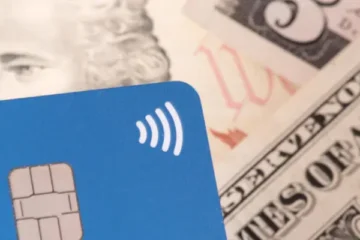Wedding Financing Options You Didn’t Know Existed
Getting married is a dream for a lot of people. But in the United States, that dream can get pretty expensive — between venue rental, catering, dress, decoration, and DJ, the average cost of a wedding around here easily goes over $25,000. And let’s be honest: not everyone has that kind of money saved up, right?
Advertisement
That’s where wedding financing comes in. It can be a way out for those who want to throw a beautiful event without maxing out the credit card or draining all their savings.
Advertisement
But before jumping into a loan, it’s smart to really understand how it works, when it makes sense, and the risks involved. Stick with me — I’ll break it all down for you!
What Is Wedding Financing?
Wedding financing is basically a type of personal loan. The difference is that it has a specific goal: to help you pay for all (or part) of your wedding expenses. Here’s how it works: you borrow a certain amount from a financial institution and then pay it back in installments, with interest.
Advertisement
The money can be used for everything — from renting the venue to paying for catering, the photographer, the wedding dress, and even the honeymoon. The good part? You can receive the full amount upfront and start organizing everything without having to wait months to save up.
When Is It Worth Financing a Wedding?

Paying for a wedding upfront isn’t always possible — and that’s okay! If the big day is getting closer and the money still isn’t enough, financing can be a solution to help you stick to your plans. But you need to evaluate things carefully: in some cases, it helps; in others, it can turn into a headache.
It might be worth it if:
- You don’t have the full amount now, but you have a stable income and know you can handle the monthly payments.
- The wedding date is already set, vendors are booked, and there’s no time left to save up.
- The loan comes with low interest rates, and you’re able to plan everything without getting deep into debt.
On the other hand, if you’re already in debt, your credit cards are maxed out, or your income is unstable, it might be smarter to wait a bit longer or look for cheaper alternatives.
How Does Wedding Financing Work?
Thinking about financing your wedding but don’t even know where to start? Don’t worry — the process is way simpler than it sounds. It works pretty much like a regular personal loan, and nowadays you can do almost everything online without even leaving your house.
You run a simulation, send your info, wait for approval, and if you get the green light, the money goes straight into your account. Then it’s time to plan your dream wedding and pay off the loan in monthly installments. Here’s how it works, step by step:
- You run a simulation with the amount you need, the number of installments, and see how much interest you’ll be paying.
- You send your personal info and documents (like proof of income, ID, etc.)
- The financial institution reviews your profile and approves (or denies) the loan.
- If approved, the money lands in your account and you can start using it right away.
- After that, you just pay the monthly installments according to the agreement.
Types of Wedding Financing Available
Planning to get married but your wallet isn’t quite on board yet? Don’t stress — these days there are several ways to get some financial help to make your big day happen — and the best part: no need to sell a kidney.
In the United States, you’ll find everything from quick online loans to more traditional options through banks. Each type has its pros and cons, and the best choice depends on your situation.
Check out the most common options and see which one fits your budget and your moment in life:
- Online Personal Loan: Fast, practical, and hassle-free. Companies like SoFi, LendingClub, and Upstart offer this type of service.
- Bank Personal Loan: Traditional banks like Wells Fargo, Chase, and Bank of America also offer loans for events like weddings.
- Credit Card Installments: Not exactly a loan, but can be a solution if you have available credit and can get decent installment terms.
- Secured Loans: Like refinancing your car or home. Lower interest rates, but you risk losing the asset if you can’t pay.
- Wedding-Specific Financing Companies: Some platforms focus only on wedding loans and may offer discounts with partner vendors.
Required Documents to Apply for Financing
You’re almost there! After choosing the ideal financing option, comes the slightly boring — but super important — part: gathering your documents. Without this, no company will approve your loan, no matter how good your intentions are.
The paperwork can vary a bit from one institution to another, but in general, the basics are pretty much the same. If you already have these documents ready, it’ll speed up the approval process a lot.
Here’s what is usually required:
- Identification document (passport, U.S. ID, or Green Card)
- Proof of income (paystub, work contract, bank statement)
- Proof of residence
- Social Security Number (SSN)
If you’re self-employed, you may need to show recent bank statements or your IRS tax return.
What Are the Costs Involved?
When it comes to wedding financing, a lot of people only focus on the amount they’ll receive. But what really makes a difference — and often goes unnoticed — are the extra costs that come with the loan.
These hidden fees can turn a good deal into a major headache if you’re not paying attention.
Before getting too excited about getting approved, it’s essential to understand exactly what’s included: interest rates, service fees, processing charges, and even late penalties.
After all, you want to start a new chapter in life — not fall into a mountain of debt.
So let’s break down the main wedding financing costs you need to watch out for:
- Interest (APR): Can range from 6% to 36% annually, depending on your credit score and repayment term.
- Origination Fees: Many lenders charge an upfront fee to process the loan, usually between 1% and 8% of the borrowed amount.
- Late or Early Repayment Penalties: Some companies charge fees if you miss a payment — or even if you try to pay off the loan ahead of time.
Always check the Annual Percentage Rate (APR) or Total Loan Cost in your loan simulation. That’s what shows the real amount you’ll pay in the end — all fees included.
How to Choose the Best Financing Option?
With so many credit offers out there, choosing the best wedding financing option can feel overwhelming. But don’t worry — no need to sign the first deal that shows up. The truth is, a bad choice can make you pay way more than necessary — and take the shine off your big day.
To avoid getting into trouble, the secret is to research, compare, and really understand each offer. Some loans have low interest rates, others offer long terms, and some hide sneaky fees… so before making a decision, it’s smart to weigh all the options.
Check out this practical step-by-step to find financing that actually makes sense for your wallet and your wedding plans:
- Research at least 3 different institutions
- Use online comparison tools like NerdWallet or Credit Karma
- Check the company’s reputation on the Better Business Bureau (BBB)
- Run simulations to compare amounts and payment terms
- Read the entire contract before signing
And steer clear of miracle promises like “no credit check loan with guaranteed approval.” That’s usually a scam!
Alternatives to Traditional Financing
Not everyone wants — or can — take on debt just to get married. And that’s totally okay! A wedding doesn’t need to come with a pile of bills to be meaningful.
If you’re tight on money or just want to avoid interest, there are plenty of alternatives to traditional wedding loans that can ease the burden and still make the day unforgettable.
These options are perfect for anyone looking to save, stay in control of their finances, and still celebrate love in a meaningful way. And the best part: you don’t have to give up your dream.
Check out some ideas that really work:
- Online crowdfunding: Platforms like GoFundMe can help you raise money from friends and family.
- Vendor partnerships: Negotiate trades, discounts, or services in exchange for social media exposure.
- Family support: If someone close to you is willing to help, that’s better than paying interest.
- Postponing the wedding: Saving a bit more beforehand can be a safer route.
- Minimalist or civil wedding: What truly matters is the union — not the size of the celebration.
Risks and Precautions Before Signing the Contract
Closing a financing deal might seem simple, but that’s where the danger lies. When it comes to money, you can’t be too careful — especially when the excitement of a wedding can push you to make rushed decisions.
So before signing any contract, take a deep breath and keep an eye on these tips to avoid future headaches:
- Read everything carefully — yes, every single line! Pay close attention to the fine print about interest rates, extra fees, payment terms, and any penalties for delays or early payoff.
- Don’t commit more than 30% of your income to loan payments. If it’s more than that, it could seriously hurt your budget and your financial future as a couple.
- Make sure the company is legit and authorized to operate in the U.S. You can check this through the FTC (Federal Trade Commission) or the CFPB (Consumer Financial Protection Bureau). Never go with a sketchy lender, okay?
- Be suspicious of offers that seem too good to be true. Like “instant approval with no credit check or paperwork.” That’s often bait for a scam. And if they ask for upfront payment to release the loan? Run — it’s a trap!
Getting married is important, but keeping the couple’s financial health in check is even more. A poorly signed contract today can turn into a tough debt to carry tomorrow.
How to Plan Your Wedding Within a Financed Budget
Getting the loan is just the beginning — now comes the real challenge: making that money last without blowing it all before the party even starts. After all, there’s no point in getting financing and spending recklessly, right? The key to a smooth and stress-free wedding is good planning.
With a little organization and smart choices, you can pull off a beautiful wedding just the way you imagined and still keep your finances in check after saying “I do.”
To help you stay on track, here’s a simple and practical step-by-step to manage your expenses and avoid last-minute surprises:
- Create a spreadsheet with everything you’ll need (venue, food, outfits, music, etc.)
- Set a budget limit and stick to it
- List your top priorities (like the ceremony, photos, food) and what can be adjusted
- Research local vendors and compare prices
- Avoid putting everything on your credit card — you don’t want to end up in a debt spiral
Does Wedding Financing Affect My Credit Score?
Yes, and a lot! Many people forget that taking out a loan for a wedding isn’t just about making a dream come true — it also directly impacts your financial life and credit score.
Depending on how you handle this commitment, the impact can be positive… or it can turn into a real headache down the road.
The good news is, if you pay everything on time and stick to the agreement, the financing can actually help you build or improve your credit history in the U.S.
On the other hand, delays or missed payments can seriously hurt your score — and that might make it harder to achieve other goals like buying a house or car in the future.
So keep an eye on these simple tips to stay on top of things:
- Always pay on time
- Don’t commit to more than you can afford
- Track your score using apps like Experian, TransUnion, or Credit Karma
Is It Possible to Have a Beautiful Wedding and Still Stay on Budget?
Absolutely! The secret is planning and making smart choices. You can have a gorgeous wedding in your backyard, on the beach, or even in a community hall. What really matters is the love and the celebration with the people who care about you.
Here are a few tips that really work:
- Have the wedding on less popular days (Monday to Thursday)
- Use DIY (do-it-yourself) decorations
- Choose a simpler catering service or homemade food
- Trim the guest list
- Ask friends and family to help out
If well planned, yes — it’s totally worth it. But it’s important not to act on emotion alone. Think about the future, your financial responsibilities, and what truly matters to you and your partner.
Financing can be the push you need to make this dream come true. But only if it comes with responsibility and a solid financial mindset.





